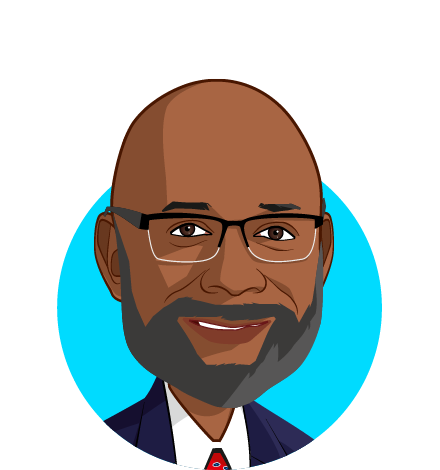Author:
Robust evidence has documented the clinical effectiveness of glucagon-like peptide 1 (GLP-1) receptor agonists — or GLP-1s — in highly-prevalent, chronic conditions, including obesity, type 2 diabetes, and kidney disease. Though we are only beginning to comprehend this drug class's transformative impact on health outcomes, 1 in 8 US adults have reported using a GLP-1. Despite the clear clinical potential and rapid uptake, increasing real-world experience with GLP-1s has illuminated major challenges for healthcare.
Verily is building
evidence-based care solutions to address these challenges and maximize the
potential for GLP-1s to help impact clinically-meaningful outcomes. By
providing highly-personalized, data-driven chronic care plans — inclusive of
comprehensive medication support, an evidence-based framework and AI-enabled
tools for nutritional behavior change, and activity plans that fit into real,
busy lives — Verily helps each person take sustainable steps to better
health.
Access is complicated
First, determining the right parameters around access has been complicated. For most health insurers, the high cost of GLP-1s paired with high utilization means long-term coverage for plan enrollees is financially unsustainable. In response to the rapid, high-volume uptake, many insurers have been forced to limit access by dropping GLP-1 coverage for weight loss, or increasing prior authorization requirements — a process that controls spending and limits unnecessary treatment, but creates additional work for both the insurer and the prescriber, in addition to potentially delaying medically-necessary care.1
Occasionally, filling GLP-1 prescriptions has been challenging as the sudden demand initially outpaced manufacturing, creating temporary shortages. Plus, for patients without commercial insurance, many whose health could benefit the most from weight loss, access is nearly impossible. Only a handful of state Medicaid programs and only 1% of ACA Marketplace plans cover GLP-1s for weight loss. Without insurance, out-of-pocket costs are approximately $1000-1400 per month (list price), depending on the medication.
Recently, access difficulty led to widespread GLP-1
compounding. While useful for periods of time in emergent situations, it is not
a long-term solution to persistent access challenges. Though compounded
medications can be cheaper than FDA-approved products, concerns with
contamination and inaccurate concentration or potency are significant.2
As the FDA-recognized shortages end,
other solutions will be needed to address the widespread access problems
surrounding cost and coverage.
Achieving meaningful clinical benefit requires more than the Rx
Second, utilization patterns show accessing a GLP-1 prescription is not enough to guarantee clinical benefit. Side effects associated with starting these medications, such as nausea, vomiting, and diarrhea, cause high discontinuation rates.3 A recent BCBS analysis suggested that up to 30% of patients discontinue GLP-1 use before the period when meaningful weight loss can be achieved, and when dosing becomes stable — around 12 weeks. For patients who continue long enough to lose weight, regaining after discontinuation is very common and potentially attributable to several clinical factors.⁴
More than many other medications, when taking a GLP-1,
patients should make simultaneous changes to diet and exercise to maximize —
and maintain — the clinical benefits.⁵ However, there are many well-documented
barriers to these lifestyle changes, many of which can be nearly impossible to
overcome without personalized support.⁶ In fact, because lifestyle is so
critical to helping patients maintain clinically-meaningful weight loss and
other long-term health benefits, some insurers are requiring
enrollment in clinical support programs as a condition of GLP-1 coverage.
Though the need is clear,⁷ limited evidence exists to help determine the right
level and type of support needed to achieve long-term clinical success.
Verily care solutions directly address these challenges
Verily has carefully considered the clinical implications of these two challenges in the design of our personalized, AI-powered chronic care solution, Verily Lightpath. Lightpath provides care pathways for multiple chronic conditions, including diabetes, obesity, weight loss and hypertension that are backed by deep clinical expertise, paired with AI-enabled support, and includes anti-obesity medication support for eligible members.* Lightpath members can interact with board-certified physicians, registered dietitians, pharmacists, nurses, and health coaches — working together to assess clinical need for GLP-1s or other weight loss treatments, proactively managing medications, and providing tailored, ongoing care for adherence and sustained change.
For access, Lightpath will deploy a novel type of reinforcement learning methodology that considers members’ expected clinical success and predicted engagement to propose an optimal allocation of scarce resources like high-demand medications.⁸ This approach helps care teams establish which patients are most likely to benefit from a GLP-1, while balancing the desire to provide equitable access. Once needs are deciphered, the care team aids in prompt access to high-quality, FDA-approved drugs.
After starting, members receive a personalized care pathway
based on clinical needs to maximize achievement of clinically-meaningful weight
loss with GLP-1s. Health coaches and registered dietitians use validated
behavioral therapy to foster adherence and lasting lifestyle changes —
nutrition, movement, and mental health — all vital to maintaining improvement
and limiting weight gain after discontinuation. Clinicians and pharmacists also
monitor their physiological measures as sudden weight loss often requires other
medication changes, such as blood pressure and diabetes medications.⁹ Finally,
members receive personal and private AI-enabled support through an AI coach,
which will answer common questions on side effects, or offer personalized
nutritional support — 24/7.
A learning health system
Due to our understanding of how to best use GLP-1s for large segments of the population is still nascent, real-world data generation is critical in navigating current and future challenges. Verily’s care solutions are designed according to the learning health system model, where internal data and clinical experiences are combined with external research and used to continuously improve quality and patient safety.
Verily’s evidence-based learning platform that powers Lightpath, will help answer questions like “which specific barriers limit access to GLP-1 medications?", “what level and type of clinical and behavioral support does an individual need to avoid early discontinuation?", “if weight loss is achieved, when should a particular patient discontinue use, and what support is needed to limit weight regain?”. These powerful insights can bring clarity to an emerging space where the importance of getting it right — from an economic, clinical, equity and access perspective — is absolutely critical.
To learn about how to reduce GLP-1 waste and achieve
sustained progress, watch this on-demand webinar, “Unlocking
GLP-1 potential”.
References
- Smith
AJB, Mulugeta-Gordon L, Pena D, Kanter GP, Bekelman JE, Haggerty AE, Ko
EM. Prior authorization in gynecologic oncology: An analysis of clinical
impact. Gynecol Oncol. 2022 Dec;167(3):519-522. doi:
10.1016/j.ygyno.2022.10.002
- Garg
R, Singh H. Safety of Compounded Medications. Cureus. 2025 Feb
5;17(2):e78541. doi: 10.7759/cureus.78541
- Lincoff
AM, et al., Semaglutide and Cardiovascular Outcomes in Obesity without
Diabetes. N Engl J Med 2023;389:2221-32. doi: 10.1056/NEJMoa2307563
- Abdullah
Bin Ahmed I. A Comprehensive Review on Weight Gain following
Discontinuation of Glucagon-Like Peptide-1 Receptor Agonists for Obesity.
J Obes. 2024 May 10;2024:8056440. doi: 10.1155/2024/8056440
- Jensen
SBK, et al. Healthy weight loss maintenance with exercise, GLP-1 receptor
agonist, or both combined followed by one year without treatment: a
post-treatment analysis of a randomised placebo-controlled trial.
eClinicalMedicine, The Lancet Discovery Science. 2024 Mar. Volume 69,
102475. . doi: 10.1016/j.eclinm.2024.102475.
- Domosławska-Żylińska
K, Łopatek M, Krysińska-Pisarek M, Sugay L. Barriers to Adherence to
Healthy Diet and Recommended Physical Activity Perceived by the Polish
Population. J Clin Med. 2023 Dec 19;13(1):22. doi: 10.3390/jcm13010022.
- Kim
DD, Hwang JH, Fendrick AM. Balancing innovation and affordability in
anti-obesity medications: the role of an alternative weight-maintenance
program, Health Affairs Scholar, Volume 2, Issue 6, June 2024, qxae055, https://doi.org/10.1093/haschl/qxae055
- Killian
JA, Jain M, Jia Y, Amar J, Huang E, Tambe M. New Approach to Equitable
Intervention Planning to Improve Engagement and Outcomes in a Digital
Health Program: Simulation Study. JMIR Diabetes. 2024 Mar 15;9:e52688.
doi: 10.2196/52688.
- Shantha
GPS, Kumar AA, Kahan S, Cheah SY, Cheskin LJ. Intentional weight loss and
dose reductions of antihypertensive medications: a retrospective cohort
study. Cardiorenal Med. 2013 Apr;3(1):17-25. doi: 10.1159/000347048.
* Disclaimers:
Verily Life Sciences LLC (“Verily”) offers virtual care management programs for eligible individuals, as further described in these materials and at Verily.com. Verily collaborates with Onduo Management Services LLC (“OMS”), Onduo LLC, and a network of affiliated Professional Entities to offer the services. These services are meant to be used in conjunction with regular in-person clinical services and not intended to replace routine primary care.
Verily makes available virtual care management programs for eligible individuals, as further described in this document and at Verily.com, and works with the following organizations who coordinate to deliver their respective services through the technology solution developed by Verily Life Sciences LLC: Onduo Professionals PC and other affiliated professional entities delivering clinical care; and Onduo Management Services LLC (“OMS”) and Onduo LLC (a licensed durable medical equipment company), wholly owned subsidiaries of Verily Life Sciences LLC.
- How it works. Verily works with a network of care providers. The Lightpath care team reviews health information from the member’s health record and direct member input to provide tailored dietary, lifestyle, and medication recommendations utilizing clinical expertise, along with professional guidelines, where applicable.
This presentation includes reference to Verily’s Personal AI Coach. Feedback from the AI Coach isn’t medical advice and might not be suitable for all users.
Verily Me is not a medical device and has not been evaluated by the FDA. Consult with a qualified healthcare professional before making any decision related to your health or treatment.
The information contained in this presentation is intended to outline Verily’s general product direction and is not a commitment or legal obligation to deliver any functionality. Product capabilities, timeframes and features are subject to change and should not be viewed as commitments
Lightpath to be available for Open Enrollment, January 1,
2026. Member experience and roadmap subject to change.

